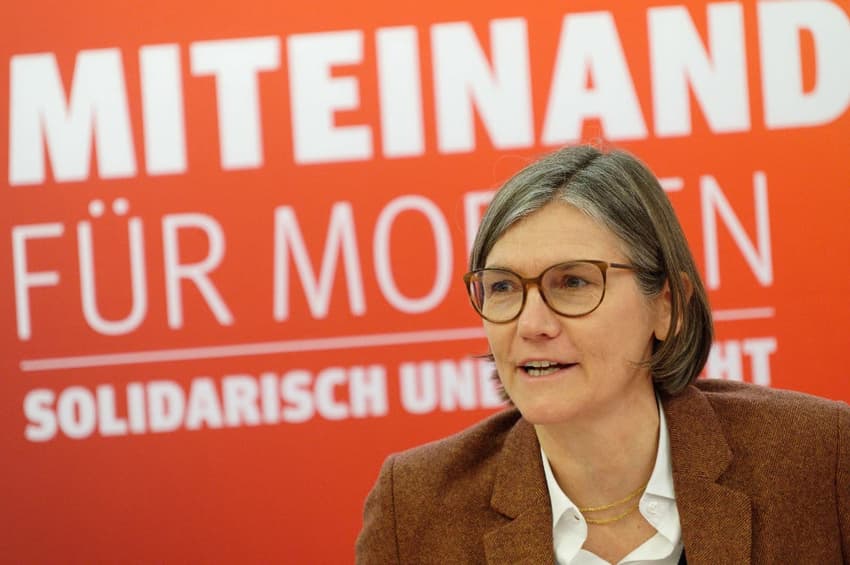Germany's biggest union to elect first woman as leader

German industrial union IG Metall, one of the most powerful unions in Europe, proposed Tuesday to appoint its
first woman as leader as it continues its fight to protect workers against inflation.
Christiane Benner, 55, is currently the union's vice president and will be officially voted in as president at a congress in October, IG Metall said in a statement.
The proposal reflects "IG Metall's ambition to shape a social, ecological and democratic transformation of the industrial and craft sectors we represent", said Jörg Hofmann, the union's outgoing president.
Hofmann, who has headed the union since 2015, is not standing for re-election.
In an interview with the Süddeutsche newspaper on Tuesday, Benner said IG Metall was "becoming much more feminine", with 26 percent of its managers now women.
A sociologist by training, Benner rose through the union's ranks after working at a mechanical engineering company.
She is in favour of a four-day working week and backs tax increases for the wealthy.
READ ALSO: Could Germany introduce a four-day working week for employees?
Benner told the Süddeutsche newspaper that as industry adapts to new challenges, such as the move away from combustion engines, employees must gain new qualifications.
"This is the only way to preserve jobs and create new ones," she said.
One of the world's largest unions, IG Metall represents workers in key sectors of Europe's biggest economy, including the automotive, machine tool and electronics industries.
In November, it secured an 8.5 percent pay rise for around four million workers to help compensate for persistent inflation in Germany.
Inflation has cooled slightly in recent months but remained elevated in April at 7.2 percent.
READ ALSO: Why inflation in Germany could slow down despite soaring food prices
Comments
See Also
Christiane Benner, 55, is currently the union's vice president and will be officially voted in as president at a congress in October, IG Metall said in a statement.
The proposal reflects "IG Metall's ambition to shape a social, ecological and democratic transformation of the industrial and craft sectors we represent", said Jörg Hofmann, the union's outgoing president.
Hofmann, who has headed the union since 2015, is not standing for re-election.
In an interview with the Süddeutsche newspaper on Tuesday, Benner said IG Metall was "becoming much more feminine", with 26 percent of its managers now women.
A sociologist by training, Benner rose through the union's ranks after working at a mechanical engineering company.
She is in favour of a four-day working week and backs tax increases for the wealthy.
READ ALSO: Could Germany introduce a four-day working week for employees?
Benner told the Süddeutsche newspaper that as industry adapts to new challenges, such as the move away from combustion engines, employees must gain new qualifications.
"This is the only way to preserve jobs and create new ones," she said.
One of the world's largest unions, IG Metall represents workers in key sectors of Europe's biggest economy, including the automotive, machine tool and electronics industries.
In November, it secured an 8.5 percent pay rise for around four million workers to help compensate for persistent inflation in Germany.
Inflation has cooled slightly in recent months but remained elevated in April at 7.2 percent.
READ ALSO: Why inflation in Germany could slow down despite soaring food prices
Join the conversation in our comments section below. Share your own views and experience and if you have a question or suggestion for our journalists then email us at [email protected].
Please keep comments civil, constructive and on topic – and make sure to read our terms of use before getting involved.
Please log in here to leave a comment.